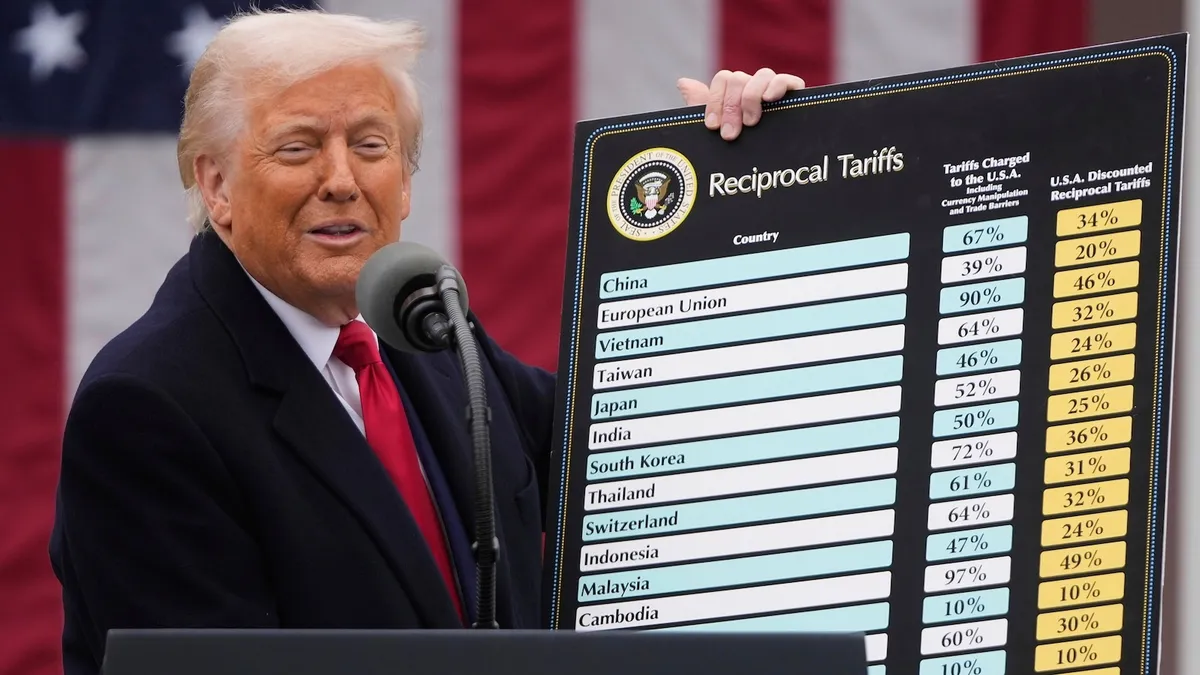
In a pivotal legal case for President Donald Trump's administration, the Supreme Court expressed skepticism regarding the president’s assertions of having unbounded tariff authority. On Wednesday, the justices deliberated on whether Trump could wield such power effectively without overstepping legal boundaries. While a majority of the court appeared doubtful about the expansive claims made by the Trump administration, some justices hinted at a potential flexibility for the president concerning foreign trade.
The court's examination revealed that while the Trump administration faced significant skepticism, there was a discussion about whether tariffs could be utilized as a tool to regulate trade rather than simply serve as a means to generate revenue. Solicitor General D. John Sauer emphasized the importance of framing these tariffs as regulatory tariffs, stating, “This policy is by far the most effective if nobody ever pays the tariffs.” This perspective could provide Trump with a pathway to continue addressing global trade imbalances, even if the court limits his broader tariff powers.
During the proceedings, Justices Amy Coney Barrett and Neil Gorsuch focused on the language of the International Emergency Economic Powers Act (IEEPA). They pointed out that the statute allows the president to regulate importation during emergencies through means such as licenses or instructions. Gorsuch remarked, “We’ve had some discussion today about the fact that maybe the president could simply recharacterize these tariffs as licenses.” Barrett echoed this sentiment, questioning the distinction between licenses and fees, suggesting that such a rebranding might sidestep legal challenges.
Neal Katyal, representing the small business challenging the tariffs, countered this notion, arguing that renaming tariffs as licenses could open the floodgates for unlimited tariff authority. “If you were to do that, it’s open-ended,” he asserted. The justices, while contemplating the implications of such a reclassification, expressed concern that the broad interpretation of the 1977 law might not hold up under scrutiny.
Justice Sonia Sotomayor raised critical points about the nature of tariffs, stating, “It’s a congressional power, not a presidential power, to tax.” This sentiment was echoed by other justices who questioned the legality of the current tariffs, positing that they essentially function as a tax on American citizens. They sought clarity on whether “regulate importation” has historically been used to confer tariff authority, suggesting that such interpretations may lack precedent.
While there was no clear consensus among the justices about completely invalidating Trump’s extensive global tariffs—central to his economic strategy—several conservative justices indicated a desire to uphold some aspects of the tariff regimen. They highlighted practical considerations related to the implications of invalidating such measures, as well as the traditional deference granted to presidents in matters of foreign affairs.
IEEPA has been instrumental in justifying almost 70% of Trump’s tariffs, which include those imposed on countries like China, Canada, and Mexico, resulting in over $89 billion collected. Depending on the Supreme Court's ruling, businesses that have already paid these tariffs may be entitled to reimbursement. Even if the court decides that IEEPA does not extend unlimited tariff power, it might delineate a more confined authority that remains within Trump’s purview.
Barrett and Gorsuch proposed exploring alternative approaches, such as using licenses instead of tariffs, or narrowing the scope of tariffs to ensure they regulate rather than fund. Gorsuch asked, “So revenue-raising tariffs are not foreign affairs, but regulatory tariffs are?” The Solicitor General responded by distinguishing the two, suggesting that revenue-raising tariffs might not carry the same weight in foreign affairs, a point that could complicate the administration's stance.
Despite the ongoing legal challenges, Trump has remained vocal about the benefits of his tariffs. On the same day as the Supreme Court oral arguments, he addressed business leaders in Florida, boasting about the substantial revenue generated through his tariffs and their positive impact on the U.S. deficit. “My tariffs are bringing in hundreds of billions of dollars into helping slash the deficit this year by more than 50%,” he stated, illustrating a commitment to his tariff agenda amidst legal uncertainties.